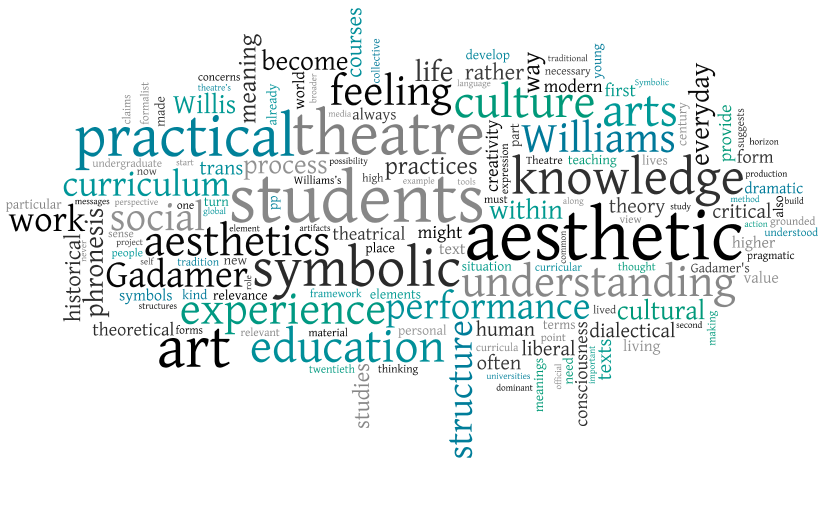From a Formalist to a Practical Aesthetic in Undergraduate Theatre Studies:
Becoming Relevant in the Twenty-First Century
Anne Berkeley
University of North Carolina, Wilmington, U.S.A.
Citation: Berkeley, A. (2011). From a formalist to a practical aesthetic in
undergraduate theatre studies: Becoming relevant in the twenty-first century. International Journal of
Education & the Arts, 12(Interlude 2). Retrieved [date] from http://www.ijea.org/v12i2/.
Abstract
As a new century unfolds, the "downsizing" and continuing marginalization of the
humanities, including theatre, in American higher education correspond to three trends
in the academy. First, in response to the fiscal crises that began in the late 1970s,
universities have increasingly turned to the private sector for financial support as
federal and state funding has been reduced. Second, universities have become
progressively more market-driven, and so, commercialized. In this context,
departments in the arts and humanities are often accused of losing their intellectual
anchors. Third, students' intentions for the bachelor of arts degree have simultaneously
shifted from developing intellectual qualities and a philosophy of life to that of
preparing for economic security. As a consequence of the changing definitions of
liberal arts education, subjects in the arts and humanities will have to reconsider their
missions and curricular practices in order to attract students and remain relevant.
Visual Abstract

This article is available in PDF format.
|

